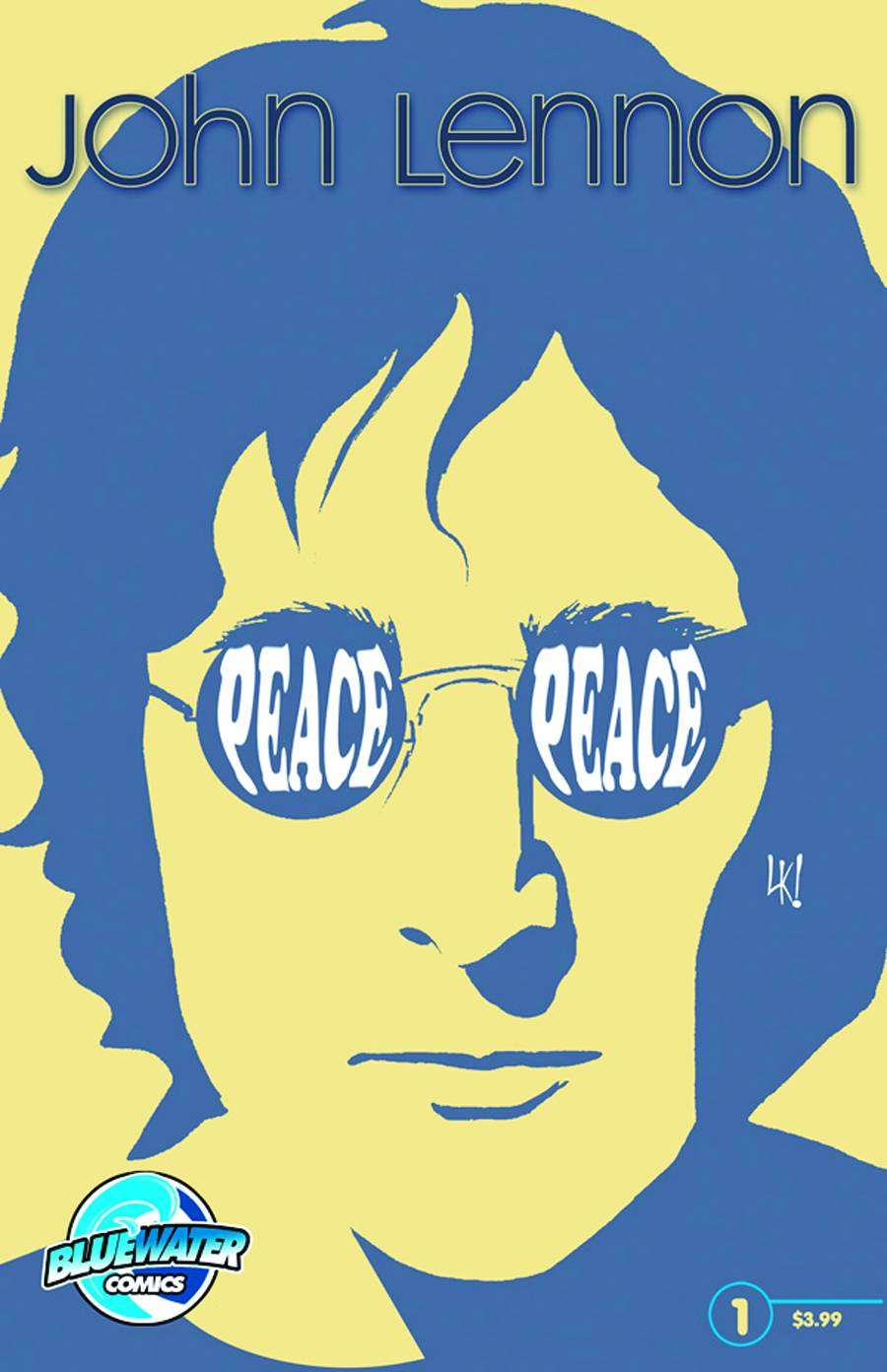Orbit: John Lennon
Bluewater Productions
Written by Marc Shapiro
Artwork by Luciano Kars
I’ve been a Beatles fan for two-thirds of my life. I have official CDs by the Beatles as a band and as solo artists, bootleg CDs, books, posters, toys. I’ve seen Paul McCartney in concert. I’m thinking about seeing Ringo Starr in concert. I moderated a panel on the Beatles at a science-fiction convention last summer. Suffice it to say, I’ve quite possibly forgotten more about the Beatles than most people ever know.
(I do not, however, have Beatles Rock Band. I wanted it, but I have absolutely no place for it.)
So when I saw that Bluewater Productions, a small-press comics publisher, was publishing a biographical comic on John Lennon, I was naturally curious. According to Bluewater, Orbit: John Lennon would be this:
John Lennon’s post-Beatles life was every bit as amazing as his time as part of the legendary Fab Four. In Orbit: John Lennon, writer Marc Shapiro looks at those up and down moments that defined this true artist and renaissance man’s final years, right up to the moment when the music truly died.
And is it?
Let me put it like this. I’m about to spend more time explaining what’s wrong with this comic than it took me to read it.
You can get more information on John Lennon from Wikipedia than you can from this comic book. I can tell you, extemporaneously, more about Lennon’s post-Beatles career than you will get from this comic book. You can watch Imagine: John Lennon, a deeply flawed documentary on Lennon’s life, and come away better informed about Lennon than will be after reading this comic book.
Here’s how Orbit: John Lennon works. The artist, Luciano Kars, takes a bunch of famous photos of John Lennon and lightboxes them. There’s not a page in this slim pamphlet that doesn’t have a familiar image of Lennon and/or the Beatles. Then, each page, which has two or three panels in the rare instance that it’s not a full-page splash, has a caption that relates some very basic information on Lennon.
Here’s a typical caption — “But when Nixon ran into a mess called Watergate, Lennon’s deportation proceedings were dismissed.”
The “story,” such as it is, begins with the Beatles Rooftop Concert of January 29, 1969, then moves on to Lennon’s solo career. (Curiously, the comic would tell you that Unfinished Music: Two Virgins came after Lennon left the Beatles.) Soon, Lennon goes through the “primal scream” therapy, records Imagine, and moves to New York, whereupon Richard Nixon wants him deported because of his “anti-war activities.” Then Lennon and Yono Ono split, Lennon goes through a creative flowering during the “Lost Weekend,” we have a panel of a pregnant and naked Yoko Ono, Lennon’s son Sean is born, and then we’re up to 1980 and the recording of Double Fantasy. But there’s a schlub named Mark David Chapman out there, he shoots Lennon dead, and now Lennon is off in heaven.
The only page of any artistic merit in this comic is the one that dramatizes Lennon’s murder, which is reminiscent of the page in The Dark Knight Returns which dramatizes the murder of Bruce Wayne’s parents in Crime Alley. No, really, that’s what it looks like, that’s how it’s paced. The only thing missing is the falling pearls.
There are several assertion about Lennon’s life and career in the comic that lack context or are without foundation. One particular egregious one is the statement that Lennon’s “ashes were scattered in New York’s Central Park,” which is not a definite fact, as Yoko Ono has never said what she’s done with Lennon’s remains. A puzzling assertion in the comic is that “Jealous Guy” from the Imagine album is “a self-examination on his relationship with [Paul] McCartney,” but the only source for that belief is McCartney himself (which the comic doesn’t mention) and the lyrics of the song don’t actually support such a reading because the Lennon who savaged McCartney on Imagine with “How Do You Sleep?” would not apologize to McCartney by singing “I didn’t mean to make you cry” for breaking up the Beatles.
Four pages are wasted on a framing device of John Lennon in heaven.
I quite literally feel dumber for having read this comic. I wouldn’t recommend this comic to anyone. It doesn’t tell you why John Lennon was important. It doesn’t tell you what he did. It doesn’t tell you why you should care about John Lennon. If you were just getting into the Beatles and wanted to know more about John Lennon, this is not the place to start. Orbit: John Lennon isn’t even a place to visit. There’s nothing entertaining or educational about this.
The only reason this comic exists is to sucker money out of the pockets of unsuspecting Beatles collectors.
